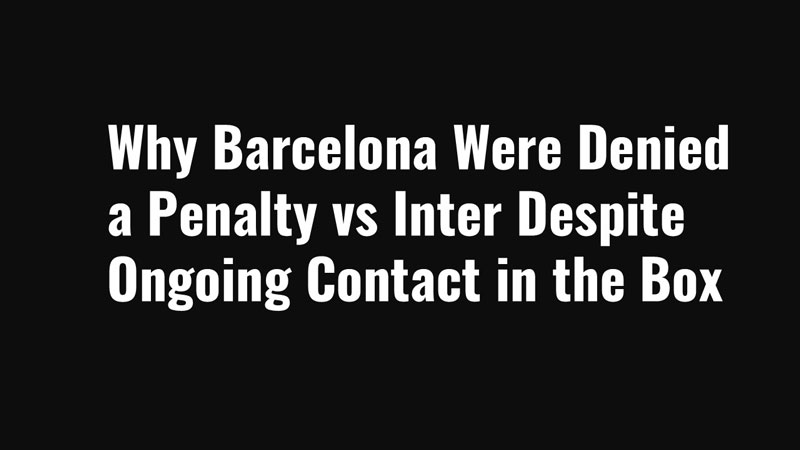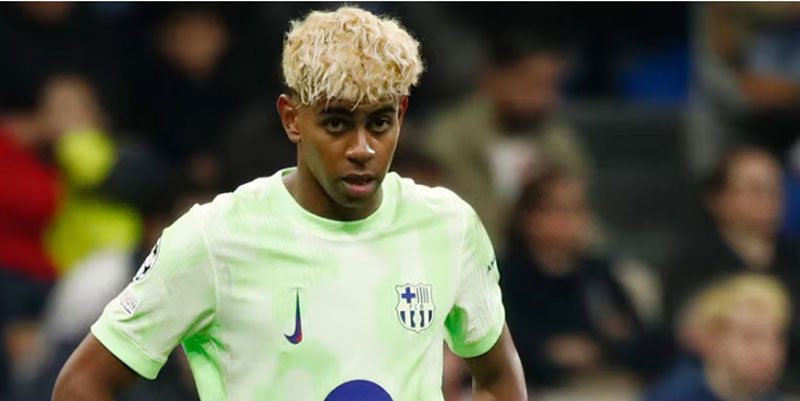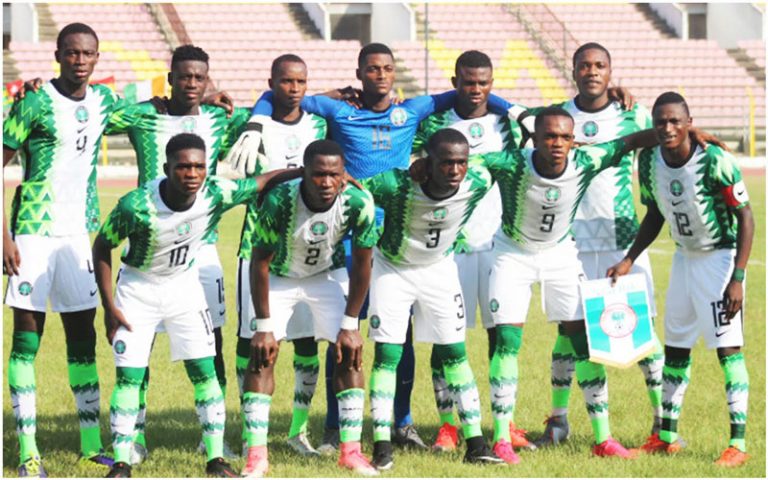Why Barcelona Were Denied a Penalty vs Inter Despite Ongoing Contact in the Box.
Another unforgettable night of Champions League football unfolded at the San Siro, where Inter Milan and Barcelona produced yet another thriller, just a week after their six-goal stalemate.

But while the goals flew in, it was a highly controversial moment in the 70th minute that stole the spotlight — a denied penalty for Barcelona that left fans, players, and pundits stunned.
The atmosphere was electric as two of Europe’s footballing giants clashed again. Inter, under Simone Inzaghi, wasted no time asserting themselves, with Lautaro Martinez finding the net within 21 minutes.

Then, right before the break, Hakan Çalhanoğlu coolly slotted home from the penalty spot to give the Nerazzurri a commanding lead.
But Barcelona were far from finished.
Rallying with renewed purpose in the second half, the Catalans hit back with quickfire goals from Eric Garcia and Dani Olmo, leveling both the match and the aggregate score.
As tensions rose and the San Siro buzzed with anticipation, a moment of brilliance—and controversy—unfolded on the right flank.
Teenage prodigy Lamine Yamal, who has rapidly become one of football’s brightest young stars, danced past Henrikh Mkhitaryan with characteristic flair.

But just as he entered the box, the veteran Armenian midfielder stretched out a leg, clipping Yamal and halting his run. The referee, Poland’s Szymon Marciniak, immediately pointed to the penalty spot.
At first glance, it looked like a clear-cut decision.
Though initial contact occurred just outside the 18-yard area, Mkhitaryan’s challenge — which included continued contact as Yamal pushed forward — carried into the penalty box. Barcelona seemed set for a golden opportunity to take the lead.
However, VAR had other ideas.
After reviewing the footage on the pitch-side monitor, Marciniak reversed his decision.
He judged that the foul’s decisive moment had occurred outside the box, reducing the penalty to a free-kick just on the edge. Barcelona’s protests fell on deaf ears.
This sparked widespread debate.
ESPN rules analyst Dale Johnson weighed in, stating that if holding or pulling begins outside the box and continues into it, a penalty should be awarded.
But Marciniak clearly interpreted this challenge differently — and Barcelona were left feeling robbed.
The Catalans couldn’t capitalize from the resulting free-kick. Still, they pushed relentlessly, and in the 88th minute, Brazilian winger Raphinha curled in a beautiful effort to seemingly seal Barcelona’s place in the final.
Raphinha, now a strong contender for the 2025 Ballon d’Or, had delivered under pressure.
But Inter weren’t done writing their script.
In the dying moments, Francesco Acerbi scored his first-ever Champions League goal, sending shockwaves through the stadium and forcing extra time.
Then, in the 97th minute, substitute Davide Frattesi — who had replaced Çalhanoğlu — emerged as the hero, netting the decisive goal to send Inter to the final at Munich’s Allianz Arena.
In total, the two-legged tie delivered a jaw-dropping 13 goals and enough drama for a Champions League docuseries.
But for Barcelona, the bitter taste of a controversial call may linger far longer than the final whistle.
Why Barcelona Were Denied a Penalty vs Inter Despite Ongoing Contact in the Box. THE END.
Was the controversial penalty truly a penalty?
Share your thoughts with us. Leave your comments below.



